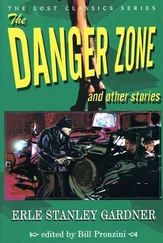Gábriel Dunka was only as tall as the woman’s belly, and having breathed in the intermingled scent of her navel and the rain on her skin, he was now a bit dizzy.
As soon as he got home — the shed, set in a simple, bare village yard, was also his workshop — he backed in right up to his door so as to get the woman inside without attracting attention. The neighbors across the stream watched his every move through binoculars, he knew — for many people could never get their fill of the spectacle of a dwarf.
As might be imagined, Elvira Spiridon hadn’t exactly been engaging in innocent pastimes. That morning she had tried to flee the country along with her companion, but the attempt turned out badly for her from the start.
Mustafa Mukkerman, the Turkish trucker, transported frozen mutton from the Beskids range to the southern tip of the Balkans and sometimes, on the side, he smuggled out desperate people by stashing them among the halves of icy sheep, which hung on hooks. On this day he had left her behind. It turned out — as they discovered only just as they were clambering up — that he had long before sworn to himself never to transport women; some nervous wench had once messed up the whole truck. So while her companion, Andrei, the road worker, was put aboard, she, Elvira Spiridon, had to stay behind on the road, and stark naked at that.
It had been raining that day since the wee hours, so Andrei Bodor and Elvira Spiridon had undressed completely; climbing into the dark rimy frozen compartment while sopping wet would have meant death itself. They’d stuffed their clothes into a single plastic bag brought along for that purpose, figuring they would get dressed again once they were on their way, safe inside. For a while the woman wrangled with the driver, but in vain. By the time reality sank in, the truck — with both Andrei and the packed clothes inside — was on its way again, on its way south, to the southern Balkans, where the lights of freedom glitter night and day. Elvira Spiridon stayed behind, naked, in the thick gray fog.
For a while she sobbed, then she pulled herself together enough to pluck an ivy leaf off a nearby bush to cover her lower belly. She must have seen this sort of thing in an old photo. But the wind soon tore the leaf away.
Elvira Spiridon wandered about half the morning amid spruces, denuded birches, and black alders until finally the dwarf glass worker’s station wagon emerged from the heart of the fog, its official yellow license plate shining. There was no mistaking it: aside from the vehicles operated by the mountain infantry, which were recognizable from afar on account of their sputtering old engines, this more or less civilian-looking red motor vehicle was the only one that regularly traversed the whole of this mountain region.
Notwithstanding his unusual size, Gábriel Dunka was a state worker, an artisan. In those days his job was to frost the windows of the Sinistra prison, which was then under construction. Every time he finished a batch — thirty-five or forty windows a week — he himself loaded up his station wagon and set out for the site. In the middle of his shed was a huge crate full of sand, with a plate of smooth glass under the sand. The dwarf moved about in his bare feet inside that crate scratching up the glass until it was no longer transparent.
The sand was piled up beside the crate, too, and that is where Gábriel Dunka set Elvira Spiridon.
“I ask for your patience,” he said in a hushed, awkward voice. “In a moment I’ll find you one or two pieces of clothing that should do.”
He now picked up the brown paper bag he’d been using as a rug, tore it halfway open, and used it to cover the naked woman. Rainwater, still seeping from Elvira Spiridon’s every crevice and orifice, ran in all directions onto the sand beneath her.
“You’re really a very interesting man,” said Elvira Spiridon, “to give someone a helping hand when they’re in trouble.”
“Trouble is right,” replied the dwarf. “Which is why I’ll ask you not to move too much. Just lie down there for the time being if possible. I can’t be seen in the window, or my neighbors, if they notice any movement, would know there’s a stranger here.”
Having stuffed the iron stove full of sawdust and spruce cones, Gábriel Dunka lit the fire. Once the heap of tinder and kindling was blazing, he threw on a fair-sized barrel stave as well. Not long before, the nearby wild fruit depot had been shut down, and old barrels left there were quickly taken apart and distributed for use as firewood. The crackling stave emitted bluish-green tongues of flame with a heady scent of fruit. Elvira Spiridon shivered under the torn paper bag.
“I myself would have been dry by now,” observed Gábriel Dunka in a somewhat embarrassed tone, aiming in part to lighten the mood. “Since I’m smaller. Naturally, if something is smaller, for example a dwarf, it dries faster.”
“I’ve already learned something new,” came Elvira Spiridon’s voice from under the paper bag. “But you know, maybe it’s a little strict to call yourself a dwarf.”
Gábriel Dunka kept his every possession in a threadbare old vulcanized-fiber trunk that served as a shelf between his bed and the shed’s clammy wall. He now opened this and rummaged about, up to his elbows in the heap of gray and yellow stained, bug-spotted, mouse-scented clothes. He picked out a few pieces and put them aside.
“Are there batteries in your radio?” Elvira Spiridon suddenly asked. “Maybe they’ll have something to announce.”
“There are batteries — but I’d like to be able to hear if someone is coming this way through the yard. It’s possible my neighbors may have gotten suspicious, after all.”
“I’m not scared here with you. No matter what happens, I’m sure you’ll figure something out. Don’t be offended by my saying so, but looking at you, I see a man from head to toe.”
“Thanks. But you know, occassionallly one or two colonels stop by, curious to know how I frost the window panes.”
“Oh dear.”
“But not too often. All the same, if any visitors turn up, not a single part of you should be showing. And no loud breathing, either.”
Taking in his arms the heap of clothes he’d picked out, Gábriel Dunka plopped them down in front of Elvira Spiridon. Lifting the torn paper bag off, he now saw to the task of dressing her. First he tried a pair of shorts with suspenders, but for all his efforts, he couldn’t pull them up even as far as her knees.
“I figured they might not be good, But I wanted to see how they look. But forgive me, I feel really strange. Because I touched your skin, I guess. . It’s lovely, but I’m a bit dizzy. I feel I can’t quite breathe right now.”
Backing away from the woman, Gábriel Dunka now leaned over a water-filled bucket, first dipping his whole face inside, then lapping some up. He didn’t dry himself off with a towel after, but instead just let the water run down his neck.
Elvira Spiridon began to dress herself, pulling one entire pair of pants up over one leg, then another over the next; and she then covered herself back and front with two jackets she tied together at the sleeves.
Gábriel Dunka had meanwhile busied himself, rattling pots and pans, and filling a pot with water and waiting by the stove for it to boil. He then mixed in dried blueberry leaves. After letting the concoction seep for a while, he poured it into two sheet-metal mugs. Once the tea looked done, he produced a one-liter bottle bearing an official blue seal and poured its contents — blue denatured alcohol — liberally into each mug. Finally he set one of the steaming mugs in the sand close to Elvira Spiridon.
“Cheers. Welcome. Heaven must have wanted this to happen.”
Читать дальше












